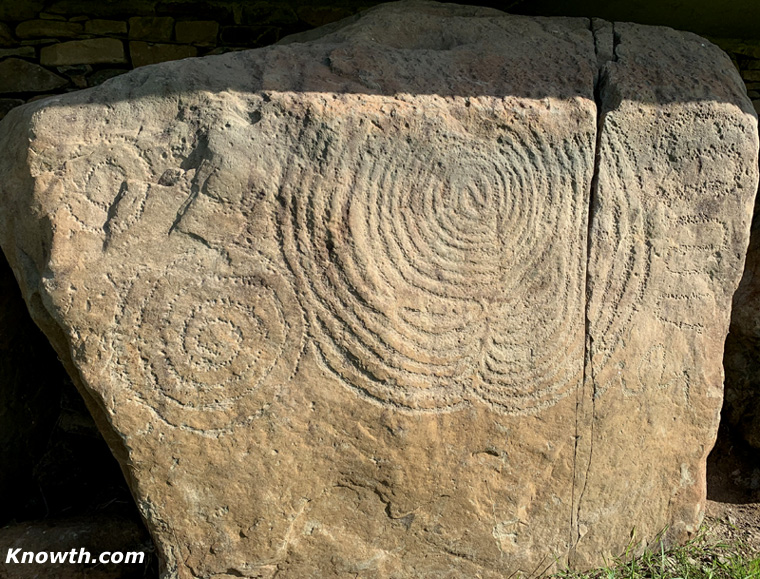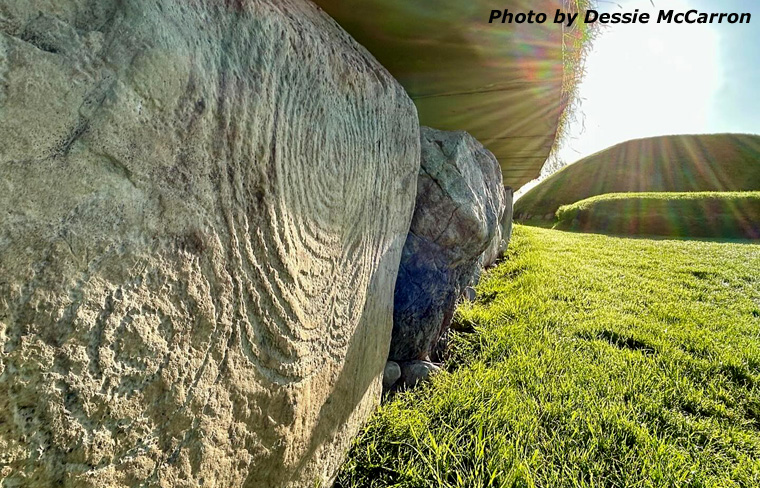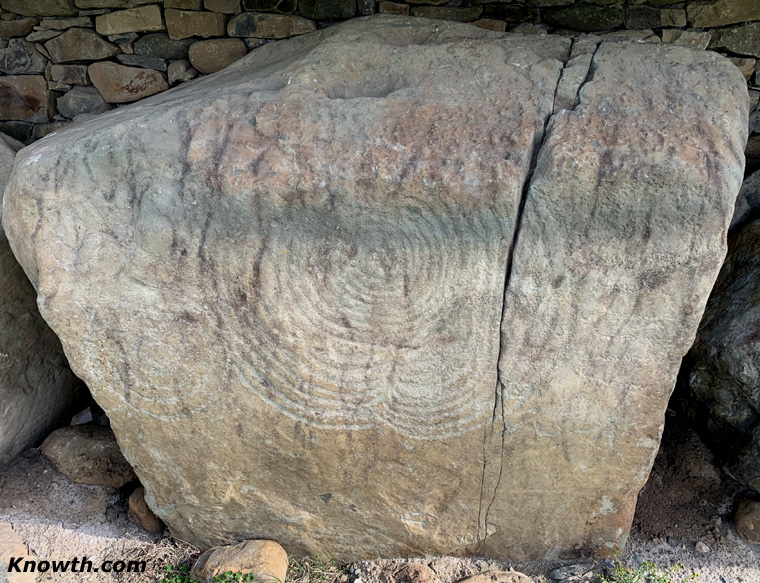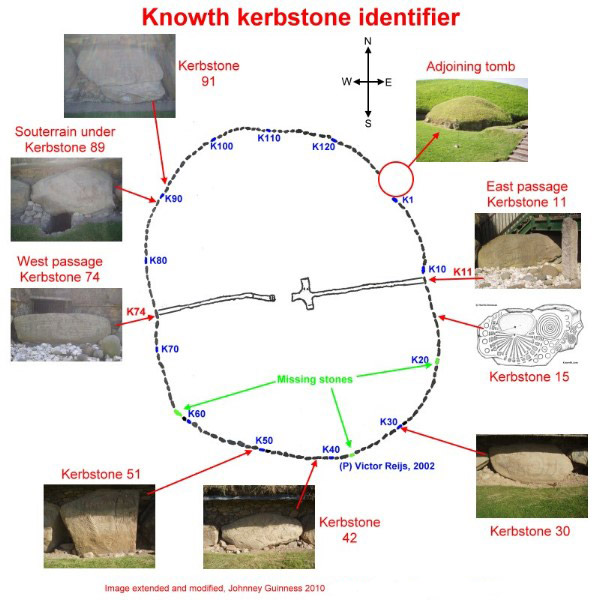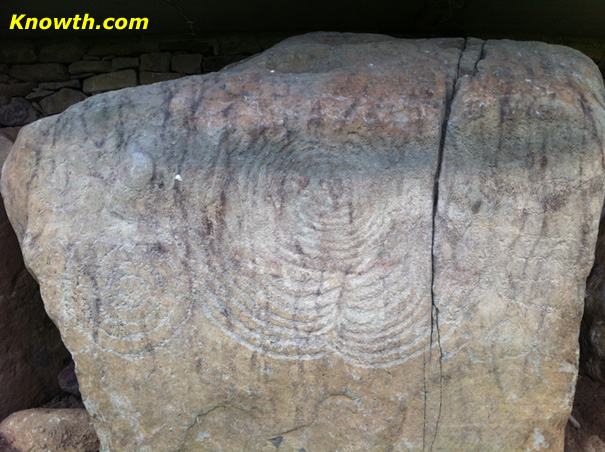The Megalithic Art of the Passage Tombs at Knowth, Co. Meath
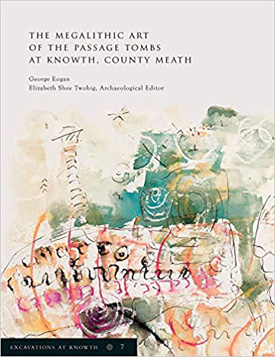 Description of Kerbstone 51
Description of Kerbstone 51
Stage 1 comprises a central, finely picked, double anti-clockwise spiral of two-and-a-half turns. This is seems to be overlaid in Stage 2 by the central elements of a row of arcs that runs across the stone. Above these is a long, horizontal serpentiform, and above that a row of circles is picked just below the top edge of the stone. The four circles on the left are single and quite wide, and the three on the right are double.
There are also a number of penannular circles along the right edge, one of which links to a deeply picked, short, horizontal zigzag. Some further motifs may be noted under the row of penannular circles, including an oval, a possible spiral, and an irregular motif at the left end of the zigzag. These motifs are very lightly picked with a fine point, sometimes drawn along to make a short, sharp line, as are parts of the zigzag, and they might therefore belong to Stage 1, like the spiral. The majority of the motifs are picked with a medium-sized, rounded point.
Purchase at Amazon.com or Amazon.co.uk. View or Download at Digital Repository of Ireland.
Knowth is a Stone Age Passage Tomb in the Boyne Valley in Ireland's Ancient East and together with Newgrange and Dowth are the principal sites of Brú na Bóinne UNESCO World Heritage Site. Knowth is the largest passage tomb of the Brú na Bóinne complex. The main mound is about 12 metres (40 ft) high and 67 metres (220 ft) in diameter covering about 1 hectare (2.5 acres). It contains two passages placed along an east-west line and was originally encircled by 127 kerbstones of which 124 are still in place.
Boyne Valley Private Day Tour
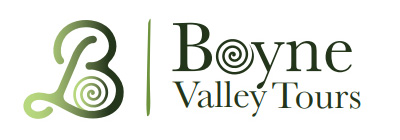 Immerse yourself in the rich heritage and culture of the Boyne Valley with our full-day private tours.
Visit Newgrange World Heritage site, explore the Hill of Slane, where Saint Patrick famously lit the Paschal fire.
Discover the Hill of Tara, the ancient seat of power for the High Kings of Ireland.
Book Now
Immerse yourself in the rich heritage and culture of the Boyne Valley with our full-day private tours.
Visit Newgrange World Heritage site, explore the Hill of Slane, where Saint Patrick famously lit the Paschal fire.
Discover the Hill of Tara, the ancient seat of power for the High Kings of Ireland.
Book Now
Home
| Newgrange
| Knowth
| Dowth
| Hill of Tara
| Fourknocks
| Loughcrew
| More Places
| Labyrinths
| Local Info
| Art Works
| Articles
| Images
| Books
| Links
| Boyne Valley Tours
| Contact

